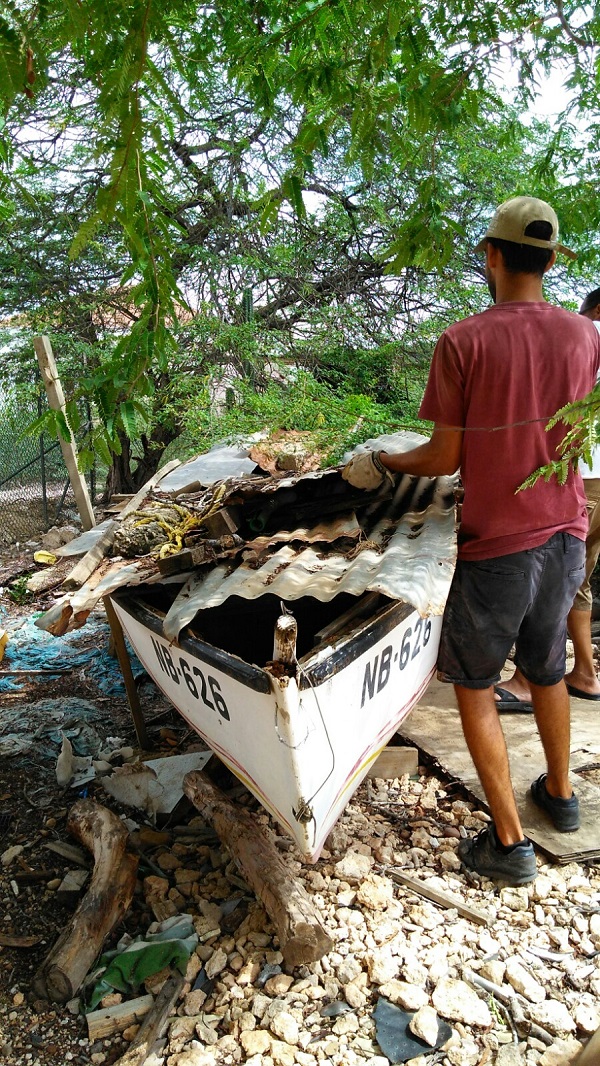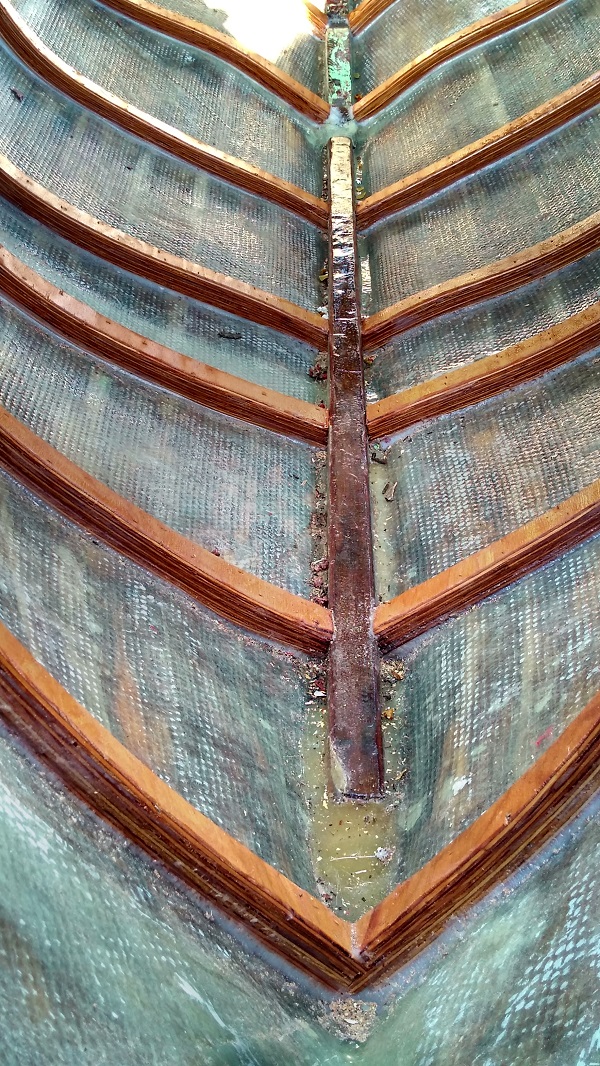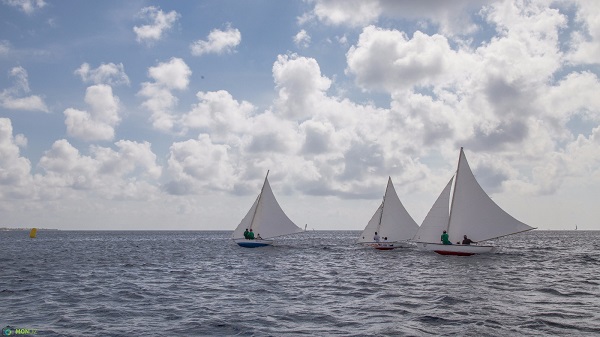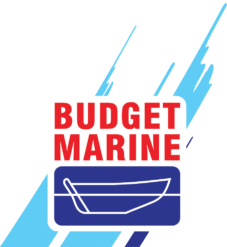Bonaire has a renowned marine heritage in ship building, navigation and fishing. The ‘boto piskado’ were beautiful sail boats used daily for fishing. They were the original boats that began the regatta and traditionally, they would take a week off fishing to join into the races after that. As sail boats were replaced by motor boats, this cultural icon began to fade with only the annual regatta to sail in. With the high cost of repairs and upkeep, most owners gave up, leaving the boats rotting away, never to sail again.

There have been many discussions and even attempts to bring them back, but there was no obvious way to get them back to operating condition and make that sustainable. That is, until a group of passionate, dedicated and committed volunteers and collaborators alike, decided, we just have to do it now, before it is too late!
Everyone wanted to see them race in the 50th Bonaire Regatta. Several companies with strong ties to the local culture and to the sea were approached to sponsor repairs to get the boats back. Rather than spending money that would likely not result in any boats floating, Budget Marine Bonaire, Obersi group, Teal and Ports of Passion teamed up with boat owners to collect and restore as many as possible, supplying materials, support and organization rather than cash. With only 2 months, there was no time to create a solid plan, we had to go with the attitude of ‘Just do it!’
In short order we found and collected 7 boats and brought them to the Regatta house at the waterfront. If you want to ‘Just do it’ you need to involve the entire community. Don Andres, a shipping company showed up with a fork lift to move the first 2 boats which were small and close by. Stretching further away and boats getting bigger, a friend with a crane was called and Fabian with Boogie trucking brought the rest of the boats to their new home. Budget Marine contacted a supplier Sea Hawk who sponsored a huge amount of materials for the project. Without this, we would have stayed high and dry. Next a call went out for workers… Carlos, a former resident that was visiting from Spain, came in to show off some new techniques that could be used to do the restorations quickly and effectively. He and his family worked diligently during his entire vacation. When it was time to go, Rafa and Kate, from Spain and England respectively remained behind and continued working every day right up to the regatta! Local craftsmen who had originally built the boats with great care, joined us to show off their skills as well. Jopi Soliano worked daily to totally renovate his own boat as well as work on and supervise the repairs on all of the others. He took great care with his boat including the artwork on the sides. We focused on 4 of the 7 boats and leave the other three for future races.

In an amazing fury of work, boats were gutted, cleaned out, fiber glassed, new ribs and structures to result in fully restored boats. Some, only the outer layer of fiberglass remained as a mold to basically build a new boat in. Passersby were roped in to sand and paint. It was amazing to watch an 80+ year old craftsmen guide a 12 year old how to do the work needed. Ivan came by to weld one item for Jopi and was caught up in the momentum and restored an old beaten up trailer with a new Axle donated by Bonaire Marine Center, so that we could get the boats to the water when done. To complete a project like this, it takes a community. People dropped by with bags of fruit, ice, drinks and Chacho brought a giant pot of soup to keep the workers fueled. People on visiting yachts dropped off lines, shackles sails and other items that could be re-purposed for these boats. When tallying up our supporters we surpassed 20 different companies and countless individuals who made some contribution.
With only 7 weeks from arrival of the first boat to the start of the Regatta, everyone was always asking why did you wait to the last minute for this or that? Well, it was all at the last minute! Doyle Sails shifted their production schedule to quickly fabricate sails for us that DHL Delivered the day before the races! During the registration we were still busy painting with the paint generously donated by Krioyo Paint. Tarzan Welding was cutting and melting lead donated by Stone Crushers to make ballast. With no proper slipway there, the boats were hand carried from our newly restored trailer into the water to prepare for their much anticipated races.
Jopi’s brother flew in from the states to be captain of the Arantsa, but Geovanni’s flight from Curacao was canceled, so another brother, Papichi, captain of competing boat, hopped on his modern fishing boat and took the long ride to Curacao to pick him up.
Time for the first race, we had only 3 of the 4 boats in the water. During the race, one broke the rudder. They rushed the broken one back and before the next race a new one was fabricated and all four boats started in the afternoon race! A metal tiller handle broke and the welders hauled their equipment onto the small boat at the shore and welded it right there in the water… each race saw some new excitement. It took till the last race for all 4 to both start and finish!

For this effort not to be wasted of course, we need to sit back now and build a plan of sustainability. With the Regatta only a few weeks behind us, we are setting forth our goals and preparing for the next Regatta in December.
The goals of the Historical Sailing Boat Project are:
- Maintain this important aspect of Bonaire culture
- Safeguarding this extreme sport and the bizarre skills required to sail them;
- Locate, negotiate, mobilize, restore or fabricate hull, mast, rigging, weights and sails from existing boats and prepare to build new ones;
- Promote sailing and educate the local community of all ages in areas related to design restoration, construction, maintenance, navigation and racing.
- Improve the infrastructure for storing and launching the boats.
Beginning next year, our goal will be quarterly races for these and all types of boats to continue the initiative. These boats are not for the young and inexperienced, so we need to continue to promote all levels of sailing to guarantee future generations of sailors able to handle these small but unique boats. The development of necessary infrastructure, maintenance programs and educational programs will also be paramount to the sustainability. Beyond our initial goals, we would like to engage and stimulate our regional neighbors to join and embrace their traditions and race with us.
We have taken some great video footage during the project, so look out for our short documentary somewhere in the beginning of next year.
For nowclick hereto see a short clip from before completion andherefor crossing the finish line!
Above is just a summary of the full, fascinating story – All At Sea has also covered the story which you can readhere
